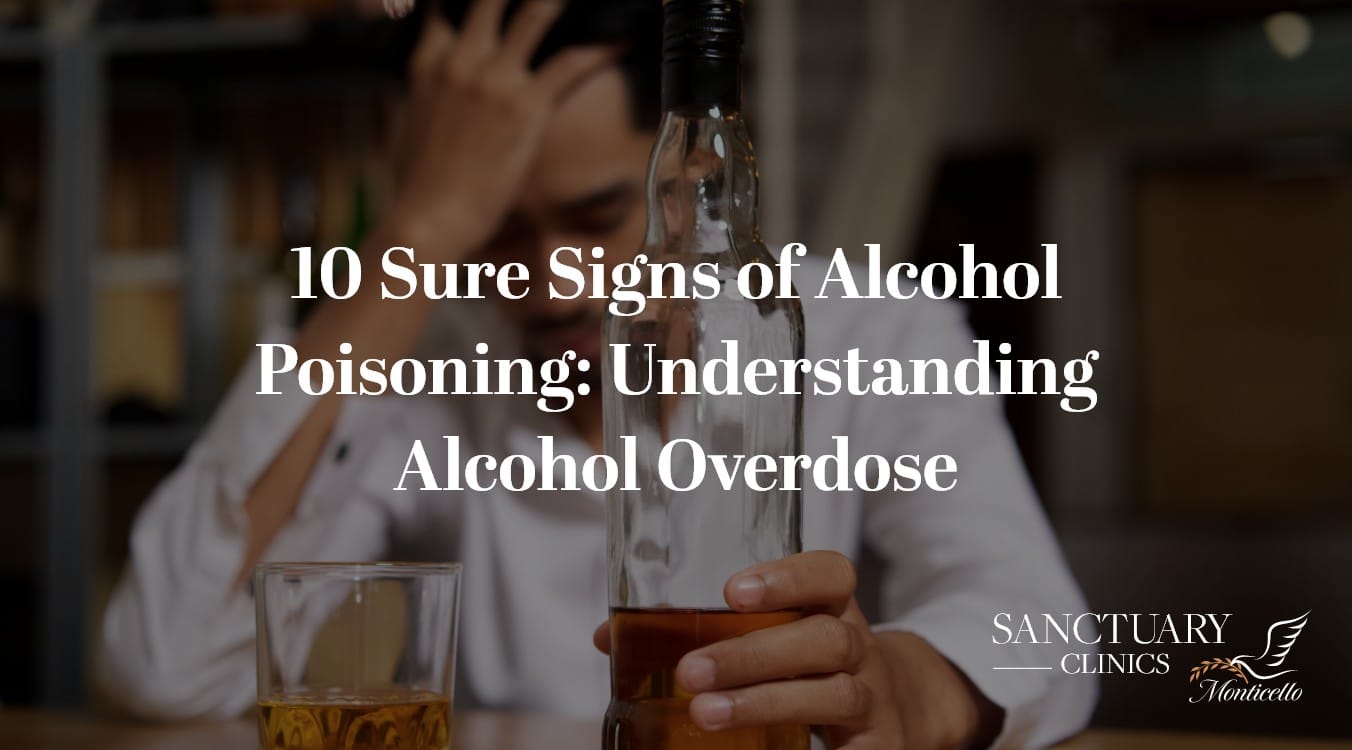Psychological trauma is the emotional distress after a person experiences a stressful event.
In our day-to-day conversations, we often label various experiences as ‘traumatic’. It can be a breakup, an irritable boss, or the nerves before a presentation.
However, one should understand the true essence of psychological trauma amidst casual references. Real emotional trauma is much more complicated than that. Trauma is an intricately layered phenomenon. Its fundamental essence is familiar to us, yet there remains much we are yet to fully grasp.
The complexity it brings can be heartrending and immensely challenging. However, choosing to evade confronting our trauma only perpetuates its lingering hold on us.
Treatment centers like Sanctuary Clinics can help with exploring and treating psychological trauma.
We will delve deeper into the types, causes, and symptoms of psychological trauma. So, keep on reading to get an understanding of trauma.
What are the types of Psychological trauma?
There are many types of psychological trauma. Trauma is layered and it does not impact everyone the same way.
Similarly, not everyone deals with trauma the same way either. Naturally, there are multiple kinds of psychological trauma.
Acute Trauma
This kind of trauma results from a single distressing event. It is usually not as layered as other types of trauma.
Moreover, the reaction is short-lived too. This type of trauma is simply the aftermath of one-time events that linger. For instance, a car accident or the passing of a loved one.
With the right treatment and care, such trauma can be dealt with.
At Sanctuary Clinics, we try to understand the psychology of our patients and offer them the right treatment for their trauma.
Chronic Trauma
As the name suggests, chronic trauma is more “chronic” in nature. This means this kind of trauma is complicated and arises from events that are prolonged. Repeated distressing actions can cause this type of trauma to surface.
For instance, bullying, abuse, domestic violence or neglect.
Complex Trauma
This kind of trauma occurs as a result of an amalgamation of multiple traumatic events. The one suffering from this kind of trauma might be exposed to multiple distressing events that push them to the edge.
They feel like there is no escape and are trapped.
Secondary Trauma
This kind of trauma is usually seen in professions like doctors, therapists, first responders and so on. This is a kind of trauma where someone is exposed to some kind of suffering and as a result, develops trauma.
Consequently, they suffer from compassion fatigue and isolate themselves.
What are the causes of Psychological trauma?
There can be many causes of psychological trauma. Psychological trauma arises when an overwhelming experience surpasses an individual’s coping abilities. It leaves them fearing death, destruction, or loss.
These traumatic events can stem from abuse of power or betrayal. They can also stem from entrapment, pain, or helplessness. It may also be the loss of someone or something significant that triggers it. Trauma encompasses a wide range. It can be from violent incidents, accidents, and natural disasters.
Or it can be from repetitive experiences like child abuse, neglect, and deprivation.
Trauma’s impact is highly individualized, and one’s perception of it is subjective. Clinical manifestations of trauma may lead to various psychiatric disorders. And, different people may react differently to similar triggering factors. There is no one-size-fits-all pattern or generalization when it comes to trauma.
This is because each person’s brain anatomy and physiology are unique. Hence, the experience of trauma can vary significantly from one individual to another.
Get Help Today.
We are here to help you through every aspect of recovery.
Let us call you to learn more about our treatment options.
We are here to help you through every aspect of recovery. Let us call you to learn more about our treatment options.
What are the symptoms of Psychological trauma?
There are wide-ranging symptoms of psychological trauma.
The issue with psychological trauma is that the symptoms can sometimes be “normal reactions”. This means even if a person is suffering from trauma, you might not be able to recognize the pattern because it seems regular. Everyone has a coping mechanism, which is their unique way of dealing with trauma. It can take many forms. Regardless, let’s briefly look at a few common trauma symptoms.
Physical Symptoms
Trauma can take a major toll on your physical health, causing physical distress. Here are some common physical symptoms:
- Lack of sleep
- Fatigue and lethargy
- Migraines
- Changes in appetite
- Sexual difficulties
- Difficulty concentrating on anything
- Racing heart and palpitations
Psychological Symptoms
Trauma will naturally have psychological effects.
Our brains are a powerful thing. Look out for these severe symptoms:
- Flashbacks
- Nightmares
- Emotional numbing
- Anxiety and fear
- Depression
- Mental health disorder
- Guilt and shame
Cognitive Symptoms
Trauma can largely impact our cognitive abilities and cause brain fog.
Here are some common trauma-related symptoms:
- Intrusive thoughts and intrusive memories
- Memory difficulties
- Unrealistic beliefs about safety
- Negative self-perception
- Catastrophic thinking
- Disrupted sense of time
Behavioral Symptoms
Psychological trauma is not only contained in our brains but can extend to our behaviors.
Here are some common reactions:
- Hypervigilance
- Avoidance
- Anxiety disorders
- Irritability and angry outbursts
- Social withdrawal
- Self-destructive behaviors
- Dissatisfaction
What are the effects of Psychological trauma?
There are many effects of psychological trauma. Psychological trauma is not an easy thing to deal with and the effects of it can vary.
Short-Term Effects
Short-term effects are the ones that stay for a short period of time. Here are some common short-term effects:
- Anxiety
- Fear
- Shock
- Aggression
- Anger
- Memory difficulties
Long-term Effects
Long-term effects of psychological trauma are the ones that linger and can interfere with day-to-day life.
Here are some long-term effects:
- Extreme anxiety
- Extreme emotional reactions
- Anhedonia
- Post Traumatic Stress Disorder or PTSD
- Depression
- Acute stress disorder
- Personality disorders
- Substance use disorders
- Difficulties with relationships
- A diminished sense of self-worth
Intergenerational Effects
The effects of trauma can also move from one generation to the next. These effects are not solely transmitted through genetic factors. But, they are also influenced by environmental, relational, and social factors.
This is more common in regions that experience frequent wars or political and social conflicts. Here are some intergenerational effects:
- Parenting behaviors
- Attachment issues
- Dysfunctional family dynamics
- Worldview and belief systems
- Mental disorders
What are the treatments for Psychological trauma?
There are different kinds of treatments for psychological trauma.
At Sanctuary Clinics, we believe in offering the appropriate treatment for every kind of trauma. Let us break down the process.

Diagnosis and Screening
Experiencing symptoms of trauma may prompt a diagnosis of a trauma-related condition like PTSD. But, it’s essential to understand that not every traumatic event automatically results in such a diagnosis. When seeking help from your doctor, they will inquire about your specific symptoms. They will also conduct screenings and tests.
If you grapple with these symptoms long after the traumatic event, your doctor will assess your condition. They will see whether you meet the criteria for a trauma- or stressor-related disorder.
They will also see if you perhaps have an adjustment disorder, depending on the nature of your symptoms. Remember that each individual’s response to trauma is unique. Seeking professional support can help you navigate the healing process.
It can also help you find the best approach for your specific situation.
Treatment options
Untreated trauma can have far-reaching consequences. It can take a toll on both personal and professional relationships. It has the potential to disrupt lives profoundly. However, there is hope, as numerous treatment options exist for trauma. Seeking help and support can lead to healing and restoration. It can allow individuals to reclaim their lives and rebuild their well-being.
There are many different approaches to trauma treatment:
- Lifestyle changes: enough sleep, social interaction, avoiding drugs and alcohol, and so on
- Psychotherapy
- Trauma-focused cognitive behavior therapy
- Psychedelic-assisted psychotherapy
- Exposure therapy
- Ketamine
- Medications
- Finding coping mechanisms
How do you know if you have psychological trauma?
It can be difficult to know if you have psychological trauma or not. It can manifest differently in each person. However, make sure to look out for the common symptoms that we discussed. If you are having difficulties in managing your thoughts and it is impacting your daily life, know that there is help available.
At Sanctuary Clinics, we extend our hands to every individual suffering from trauma. We strive to support them on their healing journey. If you think you have the symptoms and are suffering from psychological trauma, do not be hesitant to seek help.
What triggers psychological trauma?
A large number of things can trigger psychological trauma. The traumatic memory from a stressful event lives on and keeps on haunting the mind. Here are some triggers:
- Wars
- Childhood abuse
- Childhood trauma
- Persistent bullying
- Sexual abuse and physical abuse
- Interpersonal violence
- Sexual violence
- Domestic violence
- Death of a loved one
- Accidents
Get Help Today.
We are here to help you through every aspect of recovery.
Let us call you to learn more about our treatment options.
We are here to help you through every aspect of recovery. Let us call you to learn more about our treatment options.








